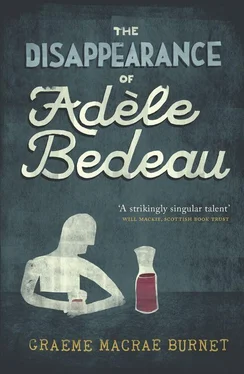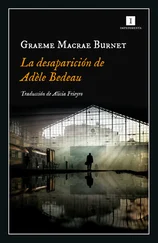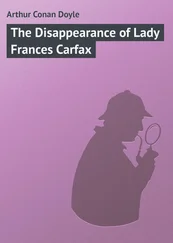AT LUNCH THE FOLLOWING DAY, the new waitress arrived to take Manfred’s order. It had taken her only a few days to settle into her role. She was a niece of Marie’s and Manfred had overheard Pasteur call her Dominique. She already seemed less harassed as she moved between the tables, even at this, the busiest time of day. Still, she was no Adèle and Manfred suddenly missed the sight of the former waitress, traipsing about the place with her carelessly fastened blouse. Dominique wrote Manfred’s order out in longhand, before snapping her notebook shut and saying, ‘Certainly, Monsieur Baumann.’
Manfred was sure that on hearing his name, the man at the adjacent table, who had previously been absorbed in his newspaper, suddenly glanced in his direction. When Manfred returned his look, he immediately averted his eyes. Manfred did not recognise the man. Had his name suddenly acquired the kind of notoriety that made someone, quite involuntarily, look up from his newspaper? Perhaps the man would later tell his wife that he had seen that fellow Baumann, whose name had been mentioned in connection with the disappearance of the waitress, sitting eating his lunch in the Restaurant de la Cloche as if nothing at all was amiss. And how, in any case, did Dominique know his name? Had Marie made a special point of pointing him out? Had she been one of those who had described him to Gorski as a creature of habit?
Dominique returned with his meat salad, a dish Manfred disliked, but which he nevertheless ordered once a week for fear of offending Pasteur, who regarded it as something of a specialité de la maison . She showed no particular emotion as she placed the bowl on the table. Manfred told himself he was being foolish. Most likely the girl had merely overheard her aunt calling him Monsieur Baumann. Marie addressed all the regulars in this formal manner. It was part of the old world atmosphere she liked to cultivate for the place. Still, it grated a little with Manfred. He felt warmly towards Marie and enjoyed the moments when she paused to exchange a few remarks with him. He never felt, as he did with other people, that she was about to ridicule him or accuse him of some misdemeanour, so when she addressed him in this way it was as if she was quite purposefully asserting the professional boundaries of their relationship.
As Manfred ate his lunch, he watched Marie go about her work. Was it possible that since the business with Adèle, she had been keeping her distance from him? There was nothing Manfred could put his finger on, yet he could not recall any occasion in the last few days when she had paused at his table to enquire about his wellbeing or pass a comment about the weather or some other uncontroversial subject. Today, for example, she had not so much as acknowledged him. She was attending to the tables on the far side of the room, as she always did during the lunch service, but even so Manfred would have expected her to mouth a greeting in his direction. The more he watched her, the more she appeared to be avoiding his gaze. Perhaps her nose was out of joint on account of his nonappearance the previous evening. Manfred felt a surge of annoyance. Was he not allowed to absent himself from the place for a single evening? He had even gone to the trouble of informing her husband in advance, not that he would expect Pasteur to have passed on the information. He ate the rest of his meal with a growing feeling of resentment. Perhaps in the future he would take his custom elsewhere. They could do without his money and gossip about him to their hearts’ content.
At the counter, Manfred deliberately averted his eyes when Marie passed with an armful of empty plates. She reappeared from the kitchen as he was collecting his change from the salver. She paused at his side and leaned in close to him.
‘So, Monsieur Baumann, what’s this I hear about a young lady in your life?’
Manfred was quite taken aback.
‘Young lady?’ he said.
‘Come on now,’ she said, placing a hand on Manfred’s arm, ‘I want to hear all about her.’
Pasteur glanced at them over his spectacles.
‘She’s just a friend,’ Manfred managed to mutter. He could not think of anyone who might have seen them together.
‘Well, you bring her in here sometime. Otherwise I’ll think you’re keeping her hidden away.’
‘Yes,’ said Manfred, ‘I will.’
He strode briskly back to the bank. Was it not possible to step outside one’s door without becoming the subject of conversation? Did people have nothing better to talk about than what he did with his evenings? He was further annoyed that Marie’s final remark had clearly been intended to convey that she knew he had eaten in another restaurant.
Manfred sat brooding at his desk. How ridiculous he was! The idea that he could sustain some kind of relationship with Alice Tarrou was preposterous. He had not even enjoyed their evening together. All he had done was listen to her talk about herself and her abhorrent ex-husband. And then, in a wretched attempt to gain her pity, he had mentioned Juliette. Manfred was disgusted with himself. It was quite despicable. And, on top of that, he had, for the first time in his life, disclosed his connection to the murdered girl. He had not mentioned her by name, but with Gorski sniffing around every aspect of his life, who was to say he would not question Alice? He felt quite nauseous.
Midway through the afternoon, Carolyn knocked timidly on the door. Manfred spread some papers on the desk in front of him before telling her to enter. She stepped into the doorway of the office and said there was a policeman to see him. Manfred felt no surprise until, instead of Gorski, a young gendarme appeared behind her.
‘Monsieur Baumann,’ he said without preamble, ‘Inspector Gorski would like to see you at the police station.’
Manfred was too surprised to respond, not because he was being asked to go to the police station, but because Gorski had not had the courtesy to come himself. Despite the awkwardness of their previous encounters there had been an atmosphere of civility, of two professional men talking, if not candidly, at least respectfully to one another. Now Gorski had sent a minion barely out of school to pick him up, as if he was a common criminal. And to compound the matter, he had done so at his place of work, in front of his staff.
‘That’s out of the question,’ Manfred said, ‘I can’t just leave at the drop of a hat.’
He said this mainly for the benefit of Carolyn, who was standing inside the door, her exit blocked by the policeman. He had no real intention of refusing.
‘I must insist,’ said the policeman. He took a few steps towards Manfred’s desk, as if he thought he might be about to make a bolt for it. Carolyn took the opportunity to slip out. Manfred remained seated for a moment.
‘Am I under arrest?’ He immediately regretted saying this. It suggested a guilty conscience.
‘No, monsieur, as I understand, you are assisting Inspector Gorski with his enquiries into the disappearance of Adèle Bedeau.’
Manfred wished that Carolyn had stayed long enough to hear this. He was merely assisting the police with their enquiries.
‘Can you give me five minutes?’ he said.
The cop nodded but remained standing, the door to the office still open. Manfred made a show of finishing reading a document, then arranged the papers on his desk into a neat pile and stood up. He fetched his jacket from the stand and put it on. The policeman put out his hand as if to usher him towards the door and followed him closely out. The staff made no pretence of carrying on with their work. They were gathered round the desk of Mlle Givskov. Manfred instructed Carolyn to reschedule his appointments for the remainder of the afternoon. She looked puzzled as Manfred did not have any appointments. He ignored her expression and told Mlle Givskov to lock up if he did not return before the bank closed for the day.
Читать дальше












